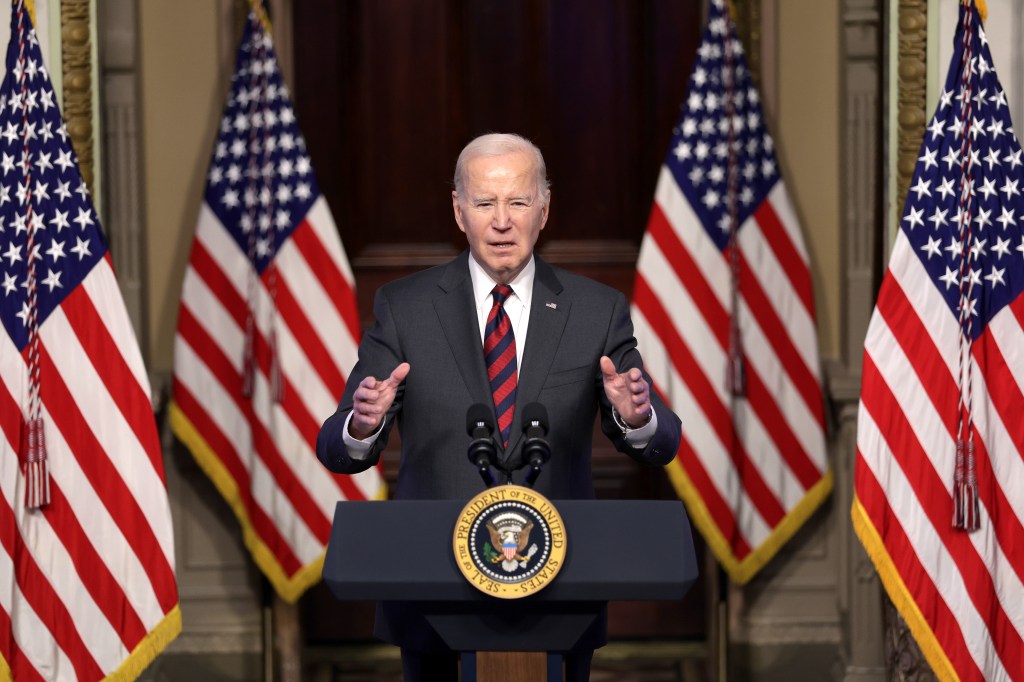President Joe Biden is creating a new cabinet-level council focused on supply chain issues, with the inaugural meeting occurring Monday, as announced by the White House.
The Council on Supply Chain Resilience will convene nearly every member of the president’s cabinet, bringing together more than a dozen of the nation’s top federal officials directly involved in industrial policy. The council will be co-chaired by the National Security Advisor and National Economic Advisor.
The White House said the council was just an example of Biden’s focus on strengthening supply chains; other executive actions the White House will be rolling out include broadening the Department of Health and Human Services’ (HHS) remit under the Defense Production Act to enable investment in domestic manufacturing of essential medicines, medical countermeasures, and critical inputs that have been deemed by the President as essential to the national defense.
Data-sharing partnerships
Another initiative is building multi-agency supply chain data-sharing partnerships.
- The Department of Commerce’s new Supply Chain Center will integrate industry expertise and data analytics to develop innovative supply chain risk assessment tools; including collaborating with the Department of Energy (DOE) to conduct deep-dive analyses on clean energy supply.
- Commerce is also partnering with HHS to assess industry and import data that can help address foreign dependency vulnerabilities and points of failure for critical drugs.
- Through the Department of Transportation’s Freight Logistics Optimization Works program – a public-private partnership – US supply chain stakeholders will create a shared, common picture of supply chain networks and facilitate a more reliable flow of goods.
- And DOE completed $275m in grant selections designed to bolster clean energy sectors, including manufacturing for critical minerals, grid-scale batteries and electric vehicles.
The Council will complete the first quadrennial supply chain review by December 31, 2024. As part of the review, the Council will update criteria on industries, sectors, and products defined as critical to national and economic security. And 12 months after the Council promulgates the criteria, and annually thereafter, it will apply the criteria to review and update the list of critical sectors, as appropriate.
Supply chain resilience
Thanks to the global COVID-19 pandemic, supply chains have been palpably disrupted, having wide repercussions across the economy and even sparking some geopolitical friction. The US government has taken some steps to ameliorate the problem, such as Congress passing several laws with supply chain provisions to bolster industries deemed critical to national security, such as semiconductors.
In a related action, Biden signed an executive order specifically authorizing the US Treasury to prohibit or restrict US investments in Chinese entities in the semiconductors and microelectronics, quantum information technologies, and certain artificial intelligence systems sectors.
Another such initiative that was enacted during the pandemic was the Supply Chain Disruptions Task Force, which was created in 2021 to resolve supply and demand mismatches and led by the Secretaries of Commerce, Transportation and Agriculture. The new council expands those efforts, the White House said.
The White House has also issued updates to its Xinjiang Supply Chain Business Advisory to call attention to China’s ongoing genocide and crimes against humanity in the Xinjiang Uighur Autonomous Region and evidence of the use of forced labor there, adding entities to the list of those who have involvement in such abuses.

















